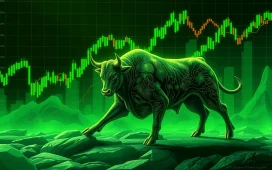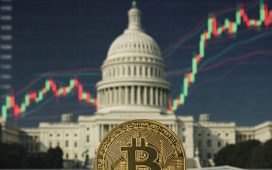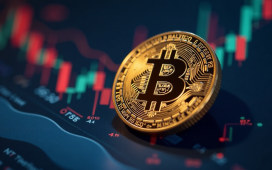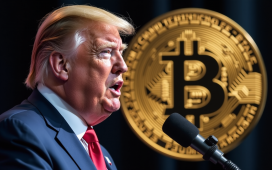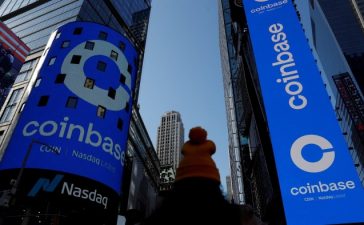The price of bitcoin has finally recovered from the 2022 controversy that caused a market-wide crypto crash.
Bitcoin was trading above $44,000 on Wednesday, 19 months after the collapse of the Terra LUNA cryptocurrency sparked one of the biggest sell-offs in the industry’s history.
The implosion of the FTX crypto exchange last November resulted in further losses, pushing bitcoin’s price below $17,000 by the start of 2023, however it has now recovered from both events.
Bitcoin’s price surge coincided with gains across other assets, with gold hitting an all-time high this week above $2,100.
Like gold, bitcoin is increasingly seen as a safe-haven asset during periods of high inflation and economic upheaval due to its fixed supply. Some investors even refer to the cryptocurrency as ‘digital gold’.
Other cryptocurrencies have also seen significant price increases in recent days, with Ethereum (ETH) up more than 10 per cent over the last week, while Solano (SOL), Cardano (ADA) and Dogecoin (DOGE) all up by between seven and 27 per cent in the last seven days.
The recovery has seen El Salvador – the country with the highest federal holdings of bitcoin – see its investment return a profit for the first time since 2021.
“El Salvador’s bitcoin investments are in the black,” President Nayib Bukele posted on X, formerly Twitter.
“Of course, we have no intention of selling; that has never been our objective. We are fully aware that the price will continue to fluctuate in the future, this doesn’t affect our long-term strategy.”
Bitcoin’s price has been buoyed by hopes that a bitcoin exchange-traded fund (ETF) will be approved in the US, bringing larger institutional investors to the crypto space.
Such a move would be a validation of bitcoin as a mainstream asset, though rumours have been circulating for years without any bitcoin ETF being approved to date.
Should the US Securities and Exchange Commission (SEC) fail to approve an ETF for the cryptocurrency, analysts warn it could send bitcoin tumbling down again.
“An approval [from the SEC] is expected to bring short-term capital influx from the traditional finance investors, fueling the uptrend, while a rejection might trigger a short-term negative price action due to high expectations of approval by market participants,” Matteo Greco, a research analyst at the digital asset investment firm Fineqia International, told The Independent.
“A rejection could prompt market participants to adjust their positions, potentially leading to a downward trend in January. Analysts remain confident, however, maintaining a 90 per cent probability of approval.”


